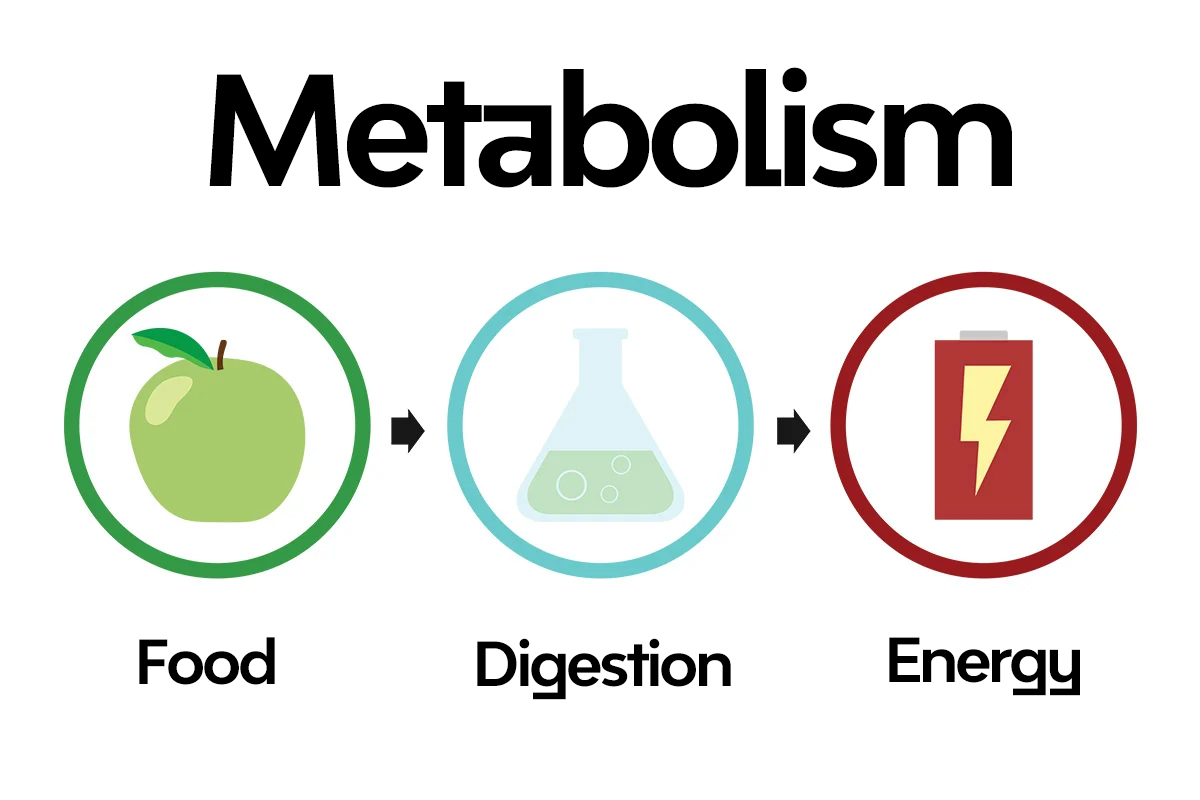
Reviewed and Updated: January 17th, 2024
Maintaining good metabolic health is essential—it impacts everything from your energy levels to your risk of long-term health issues. But what exactly is “metabolic health,” and why does it matter? Simply put, it’s the body’s ability to regulate blood sugar, cholesterol, and blood pressure within healthy ranges. As more people look to natural supplements to support these aspects of health, one option gaining attention is Berberine. This natural plant compound may offer promising benefits for managing blood sugar levels and improving insulin sensitivity. Let’s dive in to explore how Berberine works and whether it could be a helpful addition to your wellness routine.
What is Metabolic Syndrome?
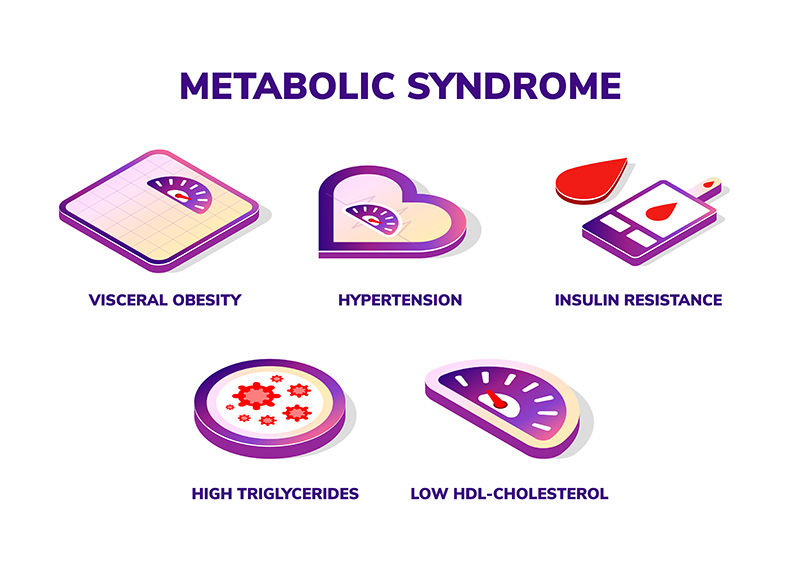
Metabolic syndrome might sound complicated, but it simply refers to a group of conditions that increase your risk of serious health issues. These include high blood sugar, insulin resistance (when your cells don’t respond well to insulin) excess fat around the abdomen, high blood pressure, high triglycerides and high cholesterol. When these conditions occur together, they can put extra strain on your heart and increase your chances of developing heart disease, diabetes, and other health problems.
Each part of metabolic syndrome is important to address, as it can affect your health in different ways. High blood sugar, for example, can lead to fatigue and long-term damage to blood vessels, while high blood pressure can strain your heart and arteries. Tackling metabolic syndrome early can reduce these risks, making it easier to stay healthy and keep your body in balance.
What is Berberine?

Berberine is a natural compound found in certain plants, like barberry, goldenseal, and Oregon grape. It’s been used for centuries in traditional medicine, especially in China and India, for its wide-ranging health benefits. Today, Berberine has gained popularity as a supplement, especially for supporting metabolic health. People are particularly interested in how it may help manage blood sugar levels, making it a popular choice for those looking to naturally support their metabolism. Whether you’re new to Berberine or exploring it for its potential benefits, it’s a supplement that’s worth learning more about as part of a balanced, health-focused lifestyle.
How Berberine Helps Support Healthy Blood Sugar Levels*

One of the reasons Berberine is so popular for metabolic health is its ability to influence blood sugar levels. When you take Berberine, it activates an enzyme called AMPK, often called the body’s “metabolic master switch.” This enzyme plays a key role in how your body uses and stores energy, helping to manage glucose more efficiently. By activating AMPK, Berberine may help your cells absorb glucose more effectively, which can lead to lower blood sugar levels over time, increasing insulin sensitivity and energy balance.
Research supports these benefits as well. Some studies have found that Berberine can lower blood sugar levels, especially in people with insulin resistance or high blood sugar. For example, in certain cases, Berberine was shown to have effects on blood sugar similar to some prescription medications. This makes it a promising option for those looking to support their blood sugar levels naturally, as part of a healthy lifestyle.
Berberine and Potential Improvement in Insulin Sensitivity
Insulin sensitivity is all about how well your body’s cells respond to insulin, the hormone that helps move glucose from your bloodstream into your cells for energy. When your cells are sensitive to insulin, they can absorb glucose more efficiently, which supports balanced blood sugar levels. However, low insulin sensitivity—often called insulin resistance—can make it harder for cells to absorb glucose, leading to higher blood sugar levels over time.
Research suggests that Berberine may help improve insulin sensitivity. By activating certain pathways in the body, Berberine might help your cells become more responsive to insulin, making it easier for them to absorb glucose. Studies have shown positive effects on insulin sensitivity, particularly in individuals with insulin resistance or early-stage diabetes. This means that Berberine may be beneficial as part of a proactive approach to metabolic health for those looking to support their body’s natural insulin function. Berberine also decreases glucose production in the liver, reduces cholesterol, triglycerides, and body fat. It possesses anti-inflammatory properties, antioxidant activity, modulates the gut microbiome; which also improves metabolic health. It additionally provides cardiovascular benefits by reducing blood pressure and improves mitochondrial health by enhancing the function of the mitochondria which improves energy production.
How to Take Berberine
Using Berberine safely can help you get the most out of its potential benefits for metabolic health. Generally, doses around 500 mg, taken two to three times a day, are common for supporting healthy blood sugar levels. However, it’s a good idea to start with a smaller dose to see how your body responds.
As with any supplement, Berberine may have some side effects, including digestive upset like stomach cramps, constipation or diarrhea. It’s best to talk with your doctor before starting Berberine if you’re on medications, especially for diabetes or blood pressure, or if you’re pregnant or breastfeeding.
When choosing a Berberine supplement, look for reputable third-party testing to ensure quality and purity. Checking labels for certifications can also help you select a high-quality product, giving you peace of mind about what you’re putting in your body.
If you’re not sure where to start, Best in Nature offers Berberine capsules with added capric acid for increased bioavailability and absorbability.
Bottom Line
Berberine offers promising support for metabolic health by helping to manage blood sugar levels and improving insulin sensitivity. While it can be a useful tool, remember that supplements work best alongside a balanced lifestyle. Think of Berberine as one part of a bigger wellness picture that includes nutritious foods, regular exercise, and healthy habits. By considering these options together, you’re setting yourself up for a healthier approach to managing metabolic health. Always listen to your body and consult a healthcare professional if you’re unsure about adding Berberine to your routine.
Additional Sources:
Zhao, X., et al. (2012). "Berberine improves mitochondrial function and biogenesis in a mouse model of obesity and diabetes." The Journal of Clinical Investigation, 122(5), 1809-1821.
Li, Z., et al. (2016). "Berberine improves endothelial dysfunction and reduces the atherosclerotic burden in hyperlipidemic rabbits." Atherosclerosis, 244, 57-66.
* This article is for informational purposes only and doesn’t constitute medical advice. For immediate health concerns, please consult your physician.
These statements have not been evaluated by the Food and Drug Administration. Products are not intended to diagnose, treat, cure or prevent disease.
© 2024 Best in Nature All rights reserved





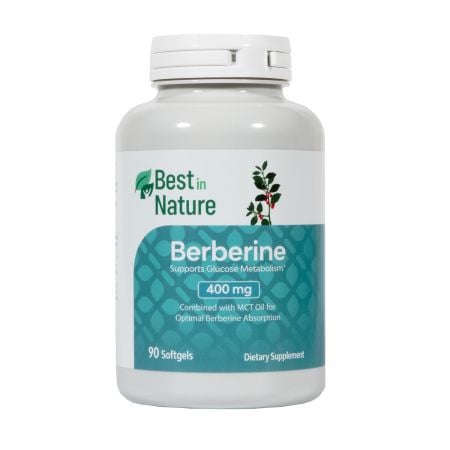
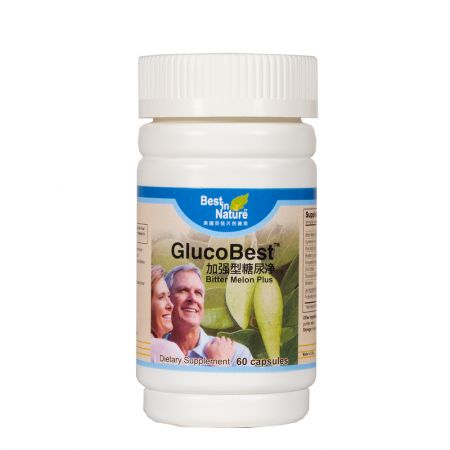
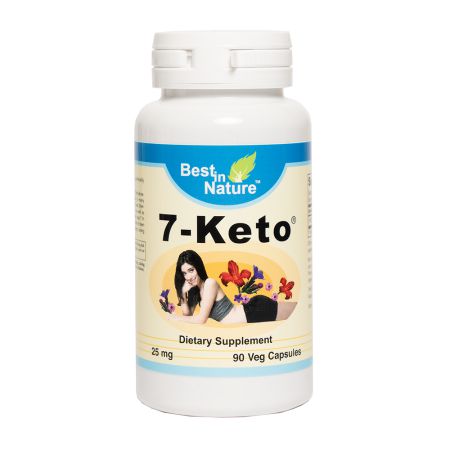
Validate your login
Sign In
Create New Account